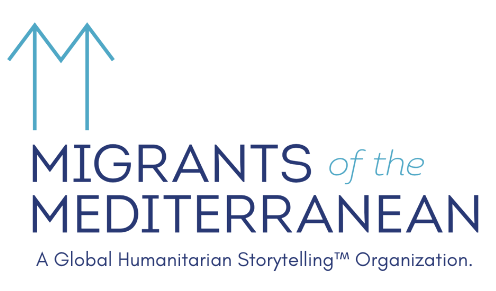Meet Wally: One Year Later
November 2017
Wally was standing in the middle of the square in Roncobello, Italy when I arrived atop the mountain village in my rental car.
After scaling the blank, winding, barely two-lane road up the side of this peak, where there are turns so sharp the car has to reverse and straighten out again just to get through, the street opens suddenly to a sky-high village on a ledge. And then it sits there, doing what it naturally does best, staring out at a mirror of itself, the unthinkably majestic Italian Alps. It feels like a bit of absurdity to find habitation here after moving so far up and away from it from the Milan metro area below.
This is Wally’s current hometown, a tiny pocket within the province of Bergamo, which lies just north and east of Milan. There’s a little cafe and bar to signal civilization, but the town is mostly defined by a neatly manicured collection of Alpine houses and the high-altitude echo of silence.
When I visited Wally for the first time in April 2017, almost six months after his transfer from Lampedusa, he was still wearing his blue puffy vest, the same one he wore on the island. On its inside pocket he removed the greeting card I had mailed him from New York; it was soft from sweat and a little bit warm because he always held it there next to his chest.
Wally is quite tall, and he is thin, but his features were noticeably rounded now. The trauma of Libya and the shaking event of being on the open sea has an emaciating effect on bodies, I’ve realized, that I cannot always see immediately on Lampedusa without having any likeness of the people already in mind when I meet them after this passage of terror occurs.
Wally’s story post-Lampedusa has been comparatively lucky. He is fed and nurtured and supported by his small community. He lives in a clean house, a converted ski lodge, with access to the kitchen, where everyone partakes in rotating shifts of either cooking the African dishes of their choosing, or cleaning after the meal has been prepared; and he sleeps in a dormitory-style room with a small attached bathroom.
“Oh, this place is nice!” exclaimed my friend, a mediator for the Italian Interior Ministry, when I showed him pictures of Wally’s space. He has been stationed from north to south, witnessing what is usually substandard accommodations while working one-on-one with migrants who need translation support and counseling, and noted it was the best he had ever seen.
The management at Wally’s house is friendly. I met one of the two managers that stay on duty during the days, she even became my friend on Facebook. The house is open, and all of its inhabitants––all male, about 25 total––are free to come and go at their leisure. There is no work to be had in town, since Wally nor his housemates have documentation to allow it, but Wally will volunteer with a local gardener to keep busy. He was looking after patches of tomatoes, lettuce and onion in the spring.
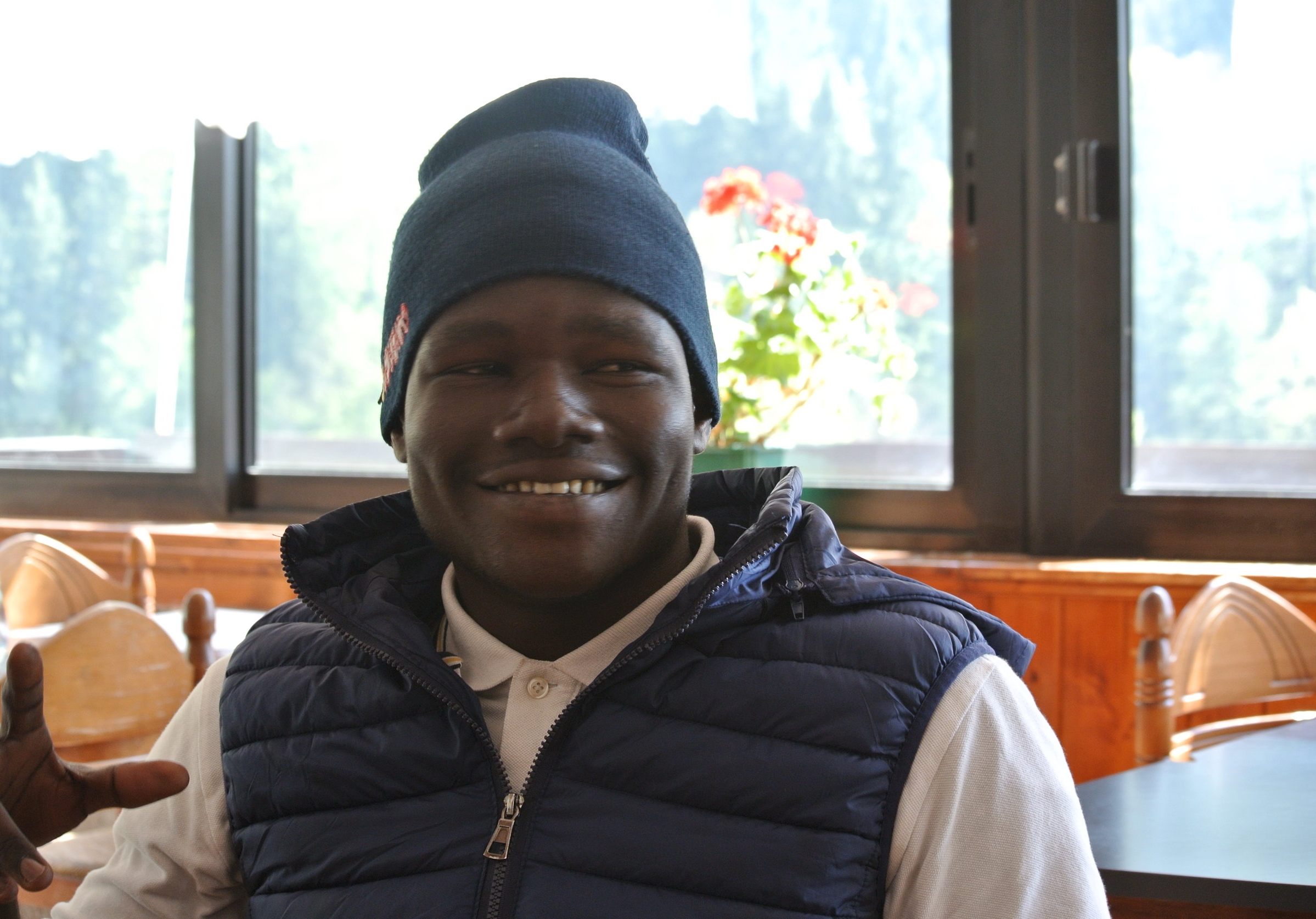
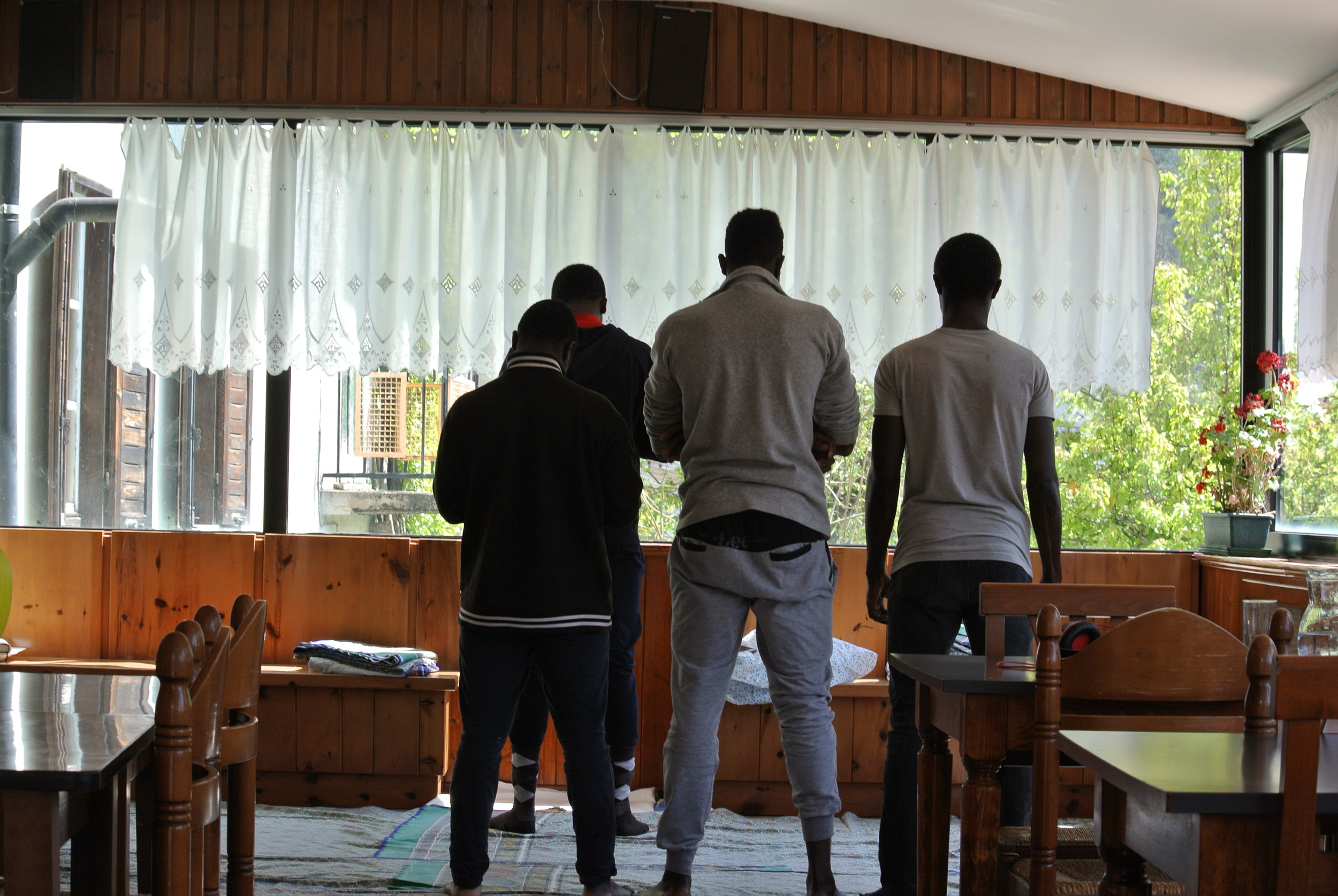
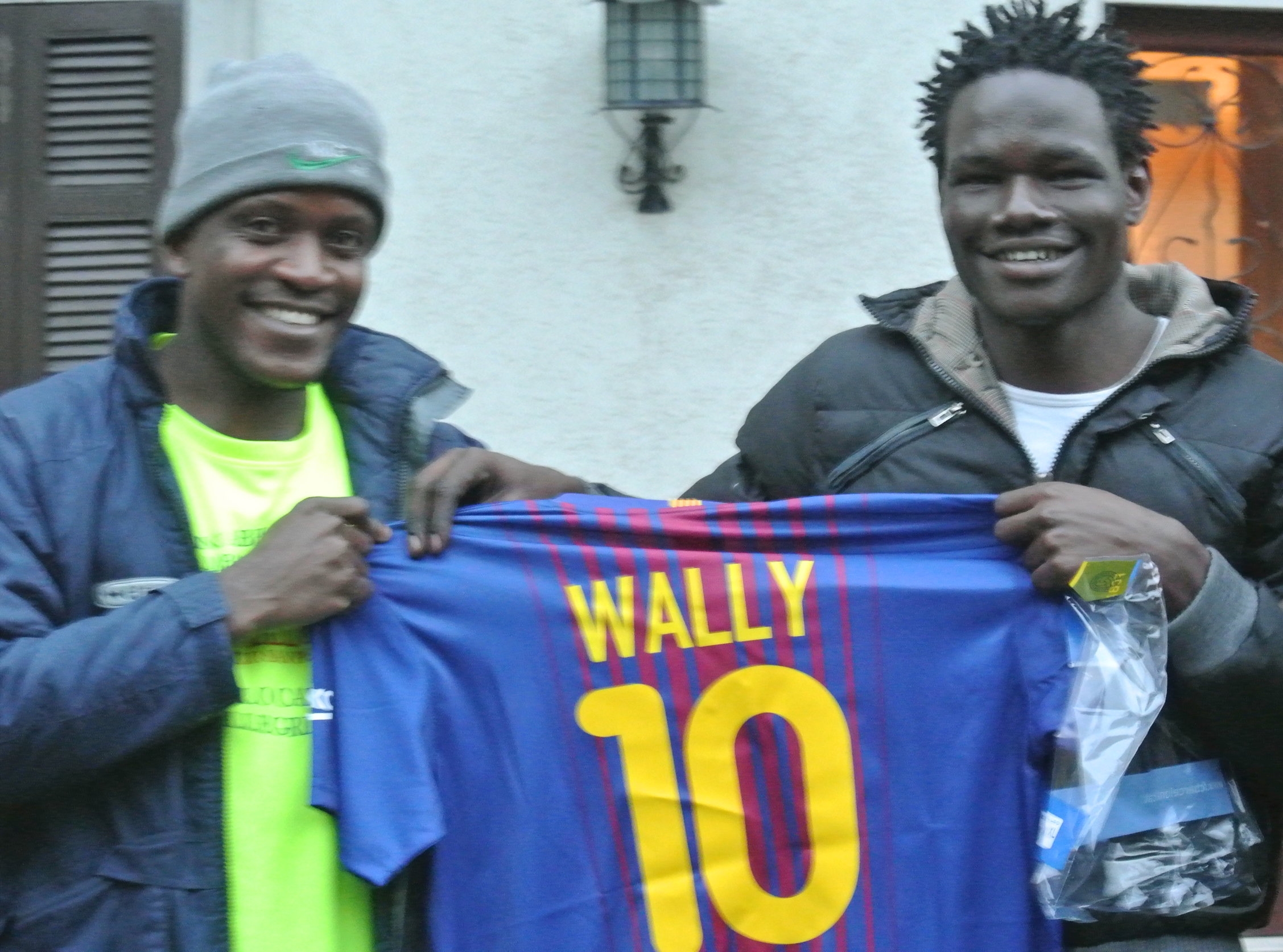
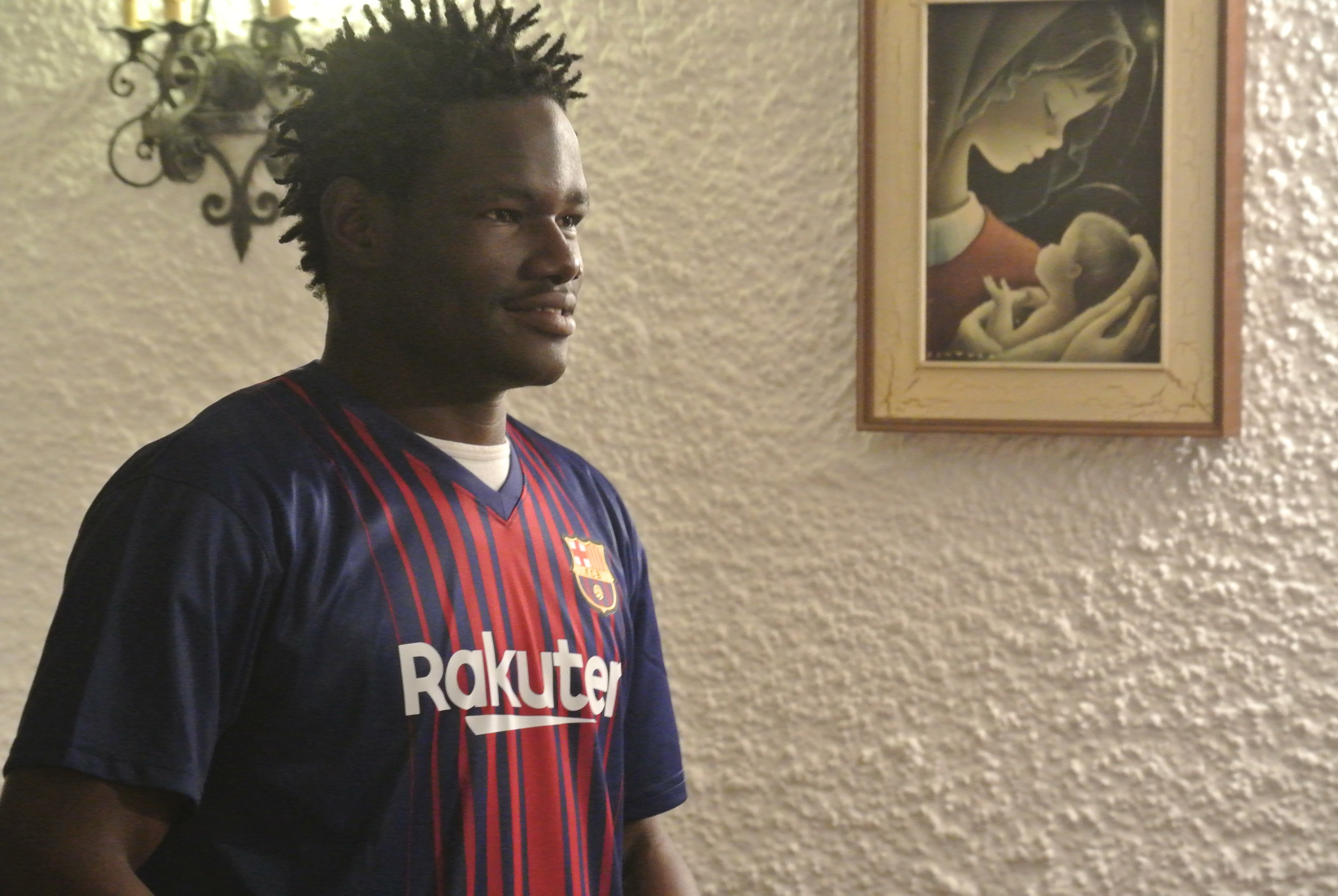
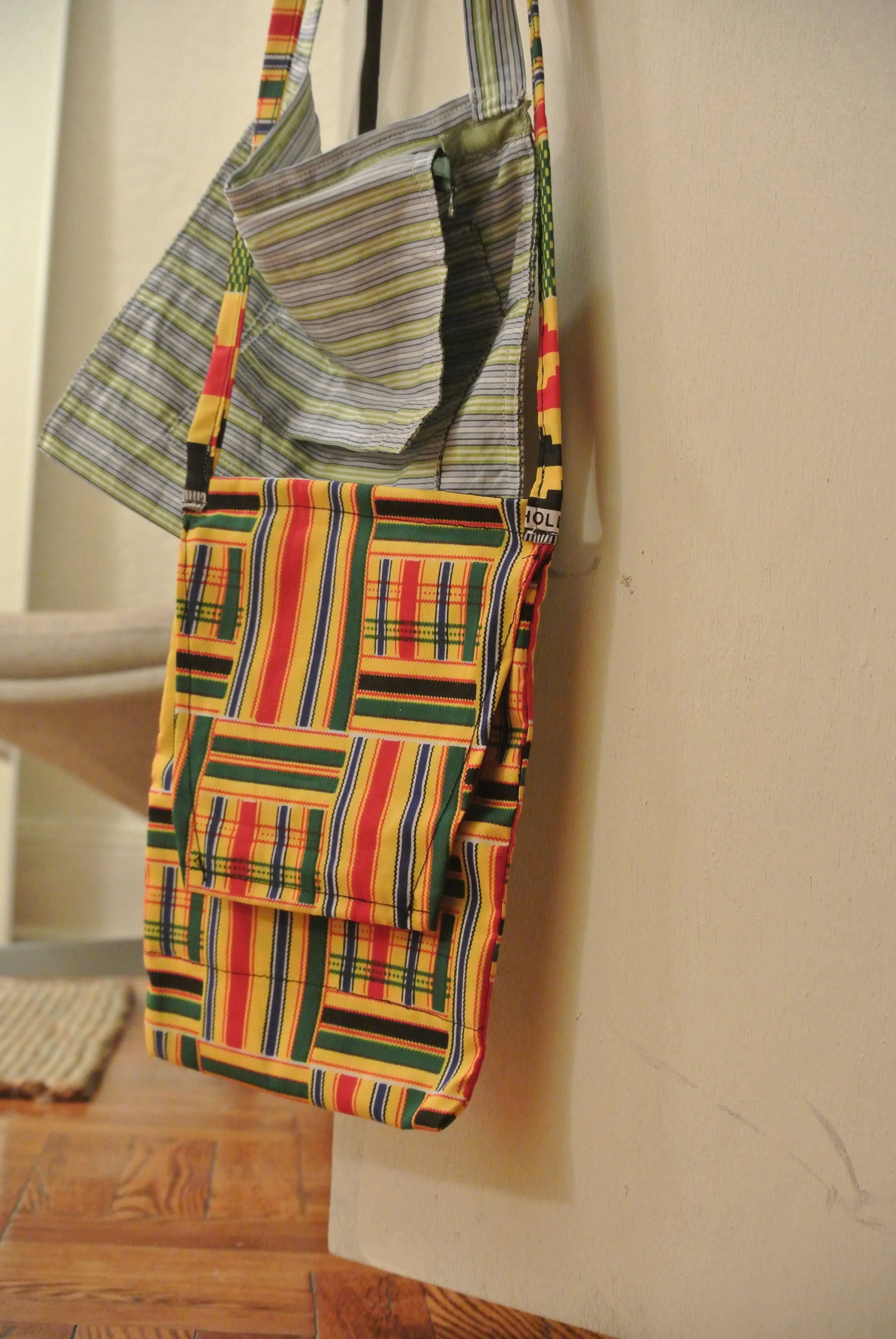
In the fall, when I arrived again to greet him on his one-year anniversary in Italy, it was too cold to garden, but he has continued the Italian grammar lessons he has had since his transfer to the north. Wally says he has a hard time learning it, but at each visit we speak incrementally less English and more Italian. Even from the weekly, sometimes daily, voice messages he sends via WhatsApp there are stronger indications of fluency.
There are crafts available at his housing, and with the materials available to him he sewed me two cross-body pouches as gifts at my visit. Wally was a bit of a star when Tatiana Diniz, friend of MotM from Barcelona, Spain, traveled with me at the anniversary carrying a Barcelona football club jersey with an emblazoned “W A L L Y” on its back. Wally is always the one in the room telling jokes, getting laughs, and broadly speaking has a personality that is a magnet for positive attention, so the spectacle of her gift just heartened that reputation.
Buba, his friend (20, Gambia; landed Lampedusa, October 2016), and then housemate told me that everyone around town knows who Wally is. Not all know his name, but everyone waves to his friendly face.
Still, life is neither easy or simple. He misses his mom. He has pictures of her on his phone and tells stories of how he used sit at her side and, of course, crack her up too. He misses his sister. He is eager to go to his commission hearing, and is hopeful he’ll receive a positive outcome, but he doesn’t know. In spite of the incredible initiative this town and Wally’s housing management has made at integrating him and his fellow migrants, time can still move slowly, listlessly.
There is a dedicated prayer room beside the dining hall where those practicing Islam may go at the designated times throughout the day. Dinner plates wait on the tables nearby, to be picked up when prayer is over. Whiteboards with verb conjugations remain on display where class is held in the living area adjacent, and a donated foosball table lies at the room’s other end. Whether people want to play or study after dinner and prayer, the house has been arranged to allow this flow of events.
And so, while Wally waits, there is at least structure to his day, a quality of life, and as much as one can have atop a remote mountain village, integration.
You can see, even now at this early stage, how this town’s openness and resourcefulness has affected its new migrant inhabitants. Lamin is ready to start school, citing a keen interest in math. Sama is eager for an education, and wants to begin a career mentoring migrants and the homeless, “I want do my best to make someone that is sad, happy,” he said. Buba plays on a local football team and is also eager to study more. While Wally––well, to say he is motivated to start work begs the question. He’s already out there volunteering, now he just needs permission to get paid for it.
Everyone’s eyes are awake here. All four have lived or continue to live in this mountain house together. Whether or not any of them will be granted asylum by Italy, we don’t know. But the positive experience of living here has at least enabled Wally to imagine it in an additive way that society will accept.
Wally is an amazing human being.
Read Wally's original journey story, recorded in November 2016 >
